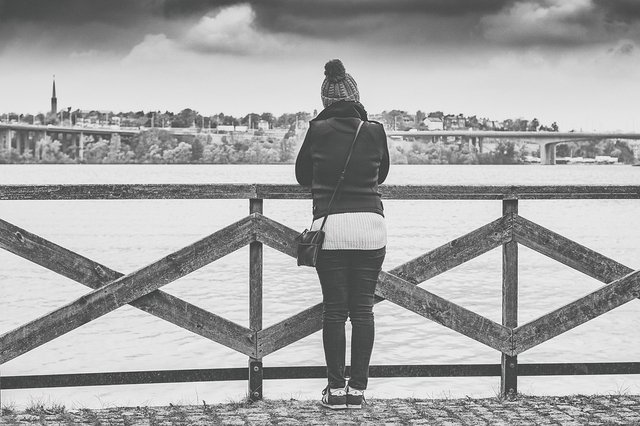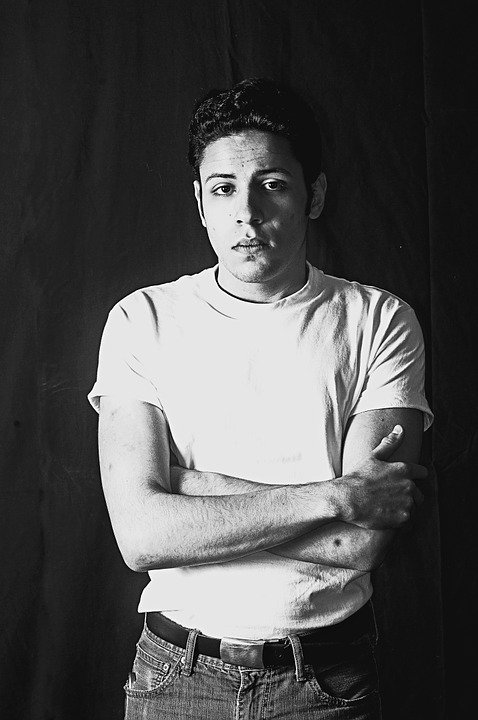Is anxiety a normal emotion?

We all feel anxiety in the face of life's uncertainties. We are afraid of getting sick or losing loved ones. This emotion is normal and can be seen to play a role in our ability to adapt to what is happening to us.
But for many of us, anxiety becomes unreasonable and unreasonable, dominating us and making us vulnerable. So we find it hard to sleep or concentrate. Our mind clings to thoughts from which we cannot distance ourselves. Anxiety appears without warning and suddenly panic sets in.
Our family and friends don't always understand suffering that doesn't respond to an observable abnormality or a particular problem. But the anxiety is clearly there and it ruins our lives.
When it becomes a disease
In some people, in certain situations and at certain times in life, anxiety becomes unhealthy. In order to qualify as such, four conditions must be met:
When it is disproportionate and arises in relation to aspects that are not dangerous in themselves. In this case, it acquires an irrational, illogical character and does not respond to common sense. We are aware that there is nothing serious, but we cannot come to our senses.
When it is too intense. Instead of helping us to adapt better to the situation, anxiety becomes unproductive and useless. When it goes beyond the limit of moderate anxiety and becomes more intense, it hinders what we are doing and we feel it as a real suffering.
When it is prolonged. Anxiety can become permanent and pervasive. It prevents us from living normally and does not give us a break. We have the impression that it will never end, that we will never see the end of the tunnel.
When it becomes uncontrollable. When we cannot control it, when we feel powerless, sometimes even angry at ourselves. We blame ourselves for not being able to react.
Anxiety occurs in one out of five people
Thus, anxiety disorders differ from normal anxiety by the presence of several intense, long-lasting symptoms that generate real discomfort and hinder daily life, work or leisure. These disorders affect about one in five people and there are several types.
-Panic disorder is defined by repeated panic attacks (acute distress crises), some of which are unpredictable and involve daily discomfort and almost permanent anticipatory anxiety ("fear of being afraid").
-Phobias are characterized by an intense and perceived excessive fear of objects or situations that are not really dangerous. Any confrontation (real or imagined) with the object or situation that causes them causes anxiety that can be serious and can lead to a panic attack. However, the anxiety disappears the moment the person feels "safe".
There are two forms of phobia:
Specific phobias related to a single type of object or a simple situation (animals, blood, airplane, etc.)
Agoraphobia, defined by fear and avoidance of situations where the person will find it difficult to escape or find help, such as crowds, department stores, concert halls or public transportation.

The fear of other people's opinions
Social phobias (also called social anxiety disorders) are characterized by an intense fear of the opinions of others and of being judged. The person fears exposure to everyday activities such as talking or acting in public. Social phobias respond to a true anxiety disorder that should not be confused with simple shyness.
The generalized anxiety disorder is characterized by a practically permanent and lasting preoccupation (at least six months), related to different motives of daily life (risk of accidents or illnesses of oneself or one's family, anticipation of financial or professional problems, etc.), without being able to "see reason" and control these thoughts. These thoughts generate a state of permanent tension, both physical and psychological.
Anxiety, in the different forms mentioned above, constitutes the most frequent psychological problem. Various studies on a large number of subjects worldwide show that between 15 and 20% of those surveyed suffer from an anxiety disorder at some point in their lives, according to a study published in 2005. Specific phobias are the most common (11.6%), followed by generalised anxiety (6%), social phobias (4.7%), panic disorder (3%) and agoraphobia (1.8%).
You just have to accept it?

Anxiety is not only treated, it is managed and we can learn to accept it so that it ceases to be an obstacle in life. One can act on one's anxiety. When we have an anxious character, we will not change it, but, little by little, we can react in a totally different way to circumstances that previously promoted the mechanics of anxiety. In time, we can come to understand our reactions better.
When the anxiety is stronger and more resistant, we can turn to treatments. Anxiolytic drugs temporarily relieve anxiety, but expose us to dependence. As a background treatment, antidepressants are recommended, which act as a real emotional filter. However, we must limit the use of medication and propose other equally effective methods, especially psychotherapies.
Medication is prescribed when it is necessary to alleviate the symptoms and when it is not possible to do so immediately by other means. They should not be seen as an end in themselves, but rather as other treatment involving personal commitment, such as cognitive and behavioural therapies (CBT). Relaxation and meditation techniques can also help relieve symptoms. CBT and mindfulness meditation are as effective as medication, with the advantage that their effects are more stable and they also prevent relapse.
It was a pleasure to share with you this interesting content that could be useful in a world where there is an overwhelming dynamic and where anyone gets challenges that lead them to constantly feel different emotions.
This is my version of an article originally written in French by Psychiatrist Dominique Servant from the University of Lilly in the North of France
Post created by Alex Diaz- humoalex using a reference article:
https://theconversation.com/hasta-que-punto-es-la-ansiedad-una-emocion-normal-115817
Images source: Pixabay (Free use images, Pixabay CC0 license)


Congratulations @humoalex! You received a personal award!
You can view your badges on your Steem Board and compare to others on the Steem Ranking
Do not miss the last post from @steemitboard:
Vote for @Steemitboard as a witness to get one more award and increased upvotes!